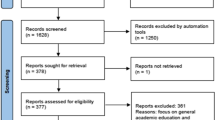Abstract
This paper presents an overview of the holistic method of course design, ‘dramaturgy’, used at Outward Bound Czech Republic. The paper is based on part of a doctoral study, which aimed to evaluate the educational process and outcomes of a course for international participants, ‘Intertouch’. ‘Dramaturgy’, a theatre term, involves the development of themes and the integration of a wide variety of social, physical, creative, emotional/reflective activities into a course scenario aiming to enhance the challenge to participants in ways other than physical. The ‘dramaturgy’ is then adapted during the course for the specific needs of the individuals and group. The findings are based on the analysis of the researchers’ participant observations and participant responses to open-ended questions up to one year after a course for international participants, Intertouch, which was trialled at Outward Bound Australia in March 1999. The results identified that the development of the course ‘dramaturgy’ is an effective method of course design that has implications for the next generation of Outdoor Education programme development and training of staff.
Similar content being viewed by others
References
Anderson-Hanley, C. (1997). Adventure programming and spirituality: Integration models, methods, and research. Journal of Experiential Education, 20(2), 102–108.
Andresen, L., Boud, D., & Cohen, R. (1995). Experience based learning. In G. Foley (Ed.), Understanding adult education and training (pp.207–219). Sydney: Allen & Unwin. Publication.
Bacon, S. (1983). The conscious use of metaphor. Denver, Colorado: Colorado Outward Bound School.
Bacon, S. (1987). The evolution of the Outward Bound process. Greenwich, CT: Outward Bound USA.
Barnard, P. (1991). Experiential learning in action. Aldershot, Hants., UK: Gower.
Cooper, G. (1994). The role of outdoor education in education in the 21st century. The Journal of Adventure Education and Outdoor Leadership, 11(2), 9–12.
Doughty, S. (1991). Three generations of development training. Journal of Adventure Education and Outdoor Leadership, 7(4), 7–9.
Gass, M.A. (1990). Transfer of learning in adventure education. In J.C. Miles, & S. Priest, Adventure Education (pp. 199–208). State College, PA: Venture Publishing Inc.
Gilsdorf, R. (1995). A workshop sequence in adventure education for German educators. Journal of Experiential Education, 18(3), 145–149.
Greenaway, R. (1993). Playback: A guide to reviewing activities. Edinburgh, Scotland: Callender Printers.
Greenaway, R. (1995). Powerful learning experiences. Unpublished PhD thesis, University of Lancaster, UK.
Flor, R. (1991). Building bridges between organization development and experiential/adventure education. The Journal of Experiential Education, 14(3), 27–34.
Handy, C. (1989). The age of unreason. London: Business Books Ltd.
Hanu, R. (Ed.). (1999). The outdoors-roots of life: Nature-the home of culture: International seminar of outdoor activities, September 25-27, 1998, Palack_ University, Olomouc. Olomouc, Czech Republic: Faculty of Physical Culture, Palack_ University.
Holec, O. (1994a). Dramaturgie. In Outward Bound Czech Republic: Prázdninová _kola Lipnice, Instruktorsk_ slabikár (pp.37–50). Nadace Rozvoje Obcanské Spolecnosti.
Holec, O. (1994b). The present and the future of Outward Bound Czech Republic. In J. Neuman, I. Mytting, & J. Brtra (Eds.), Outdoor activities: Proceedings of international seminar, Charles University, Prague (pp.145–148). Luneburg: Verlag Edition Erlebnispadagogik.
Hopkins, D. (1985). Self-concept and adventure. Journal of Adventure Education and Outdoor Leadership, 2(1), 7–15.
Hopkins, D., & Putnam, R. (1993). Personal growth through adventure. London: David Fulton Publishers.
James, T. (2000). Can the mountains speak for themselves? Scisco Conscientia, 3, 1–4.
Kalisch, K. (1979). The role of the instructor in the Outward Bound educational process. Three Lakes, WI: Honey Lakes Camp.
Krouwel, W. (1994). The Czech way to personal development. Training Officer, 30(5), 140–142.
Krouwel, W. (2000). An investigation into the past, current and potential role of outdoor development (and particularly) outdoor management development practice in Britain in the light of practice at Vacation School Lipnice and Ceske Cesta in the Czech Republic. Unpublished Masters thesis, University of Lancaster, UK.
Martin, A.J. (2000). Towards a new generation of Outward Bound. Horizons, 10, 29–30.
Martin, A.J., & Leberman, S.I. (2000). Adventure the Czech way [On-line]. Seism Conscientia, 2(3), 1–17.
Martin, A.J. (2001). Outdoor adventure the Czech way. In M. Green (Ed.), 12th National Outdoor Education Conference: Conference proceeding, January 15–18, LaTrobe University, Bendigo (pp. 101–108). Victoria, Australia: Victorian Outdoor Education Association.
Neuman, J., Mytting, I., & Brtník, J. (Eds.), Outdoor activities: Proceedings of international seminar, Charles University, Prague (pp.145–148). Luneburg: Verlag Edition Erlebnispadagogik.
kola Lipnice. (1999a). Vacation School Lipnice (VSL) Outward Bound Czech Republic. Outward Bound Czech Republic: Prázdninová _kola Lipnice brochure.
kola Lipnice. (1999b). Vacation School Lipnice (VSL) Outward Bound Czech Republic. Retrieved July 15, 1999 from the World WideWeb: http://www.ecn.cz.prazdninovka/vacation.html
Priest, S., & Gass, M. (1993). Five generations of facilitated learning from adventure experiences. Journal of Adventure Education and Leadership, 10(3), 23–25.
Researchware (1998). HyperRESEARCH. Randolf, MA, USA: Researchware.
Shantz, C. (1998). Dictionary of the theatre: Terms, concepts and analysis. Toronto: Unversity of Toronto Press.
Schoel, J. Prouty, D., & Radcliffe, P. (1988). Islands of healing: A guide to adventure based counselling. Hamilton, Massachusetts: Project Adventure, Inc.
Wurdinger, S. (1994). Examining the learning process used in adventure education. The Journal of Adventure Education and Outdoor Leadership, 11(3), 25–27.
Van Matre, S. (1974). Acclimatising: A personal and reflective approach to a natural relationship. Martinsville, Indiana: American Camping Association.
Author information
Authors and Affiliations
Corresponding author
Rights and permissions
About this article
Cite this article
Martin, A. ‘Dramaturgy’: An Holistic Approach To Outdoor Education. Journal of Outdoor and Environmental Education 5, 34–41 (2001). https://doi.org/10.1007/BF03400732
Published:
Issue Date:
DOI: https://doi.org/10.1007/BF03400732




